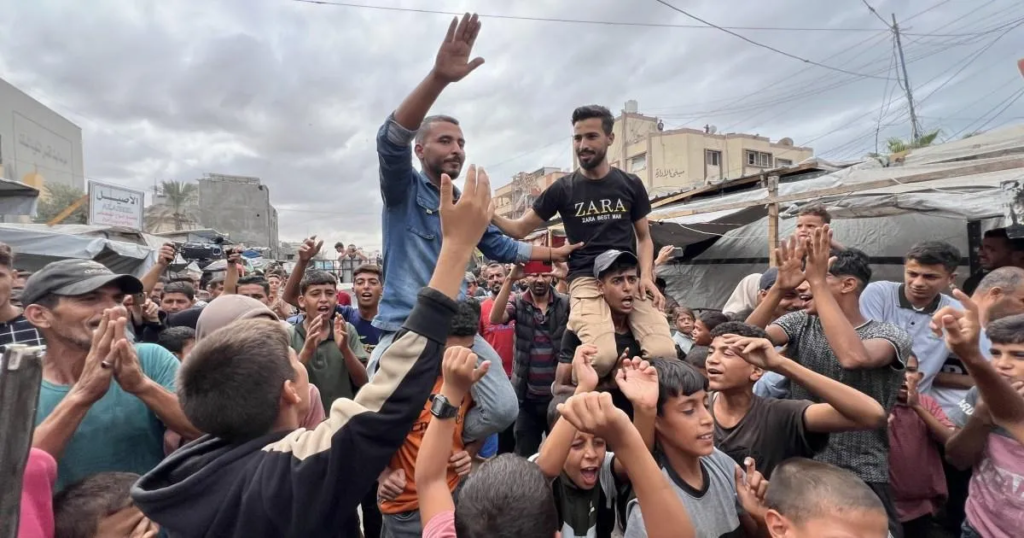Israel approves Trump’s plan for Gaza ceasefire and hostage release, signaling a potential turning point in the long-standing conflict. The agreement, championed by former U.S. President Donald Trump, aims to bring immediate relief to civilians and create a framework for lasting peace.
Israel Approves Trump’s Plan: Ceasefire Brings Hope to Gaza
The ceasefire outlined in Trump’s plan has already sparked optimism among international observers. Israel’s approval demonstrates a willingness to step back from prolonged military engagement, opening avenues for humanitarian assistance and negotiations. The plan emphasizes the safe release of hostages and the protection of civilians in conflict zones, highlighting a commitment to human dignity.
The Gaza Strip, long affected by violence and blockades, could witness a rare moment of calm. Local communities express cautious hope, recognizing the importance of diplomatic efforts in reducing hostilities.
Hostage Release at the Heart of Trump’s Plan
One of the most critical components of the agreement is the release of hostages held in Gaza. Israel approves Trump’s plan with the understanding that timely coordination and international oversight are essential. Families separated by conflict now see a tangible path toward reunification.
This aspect of the plan humanizes the conflict, reminding the world that political negotiations directly impact individual lives. It also sets a precedent for future humanitarian-focused agreements, highlighting diplomacy over aggression.
Israel Approves Trump’s Plan: Transforming Regional Relations
Israel approves Trump’s plan not only as a measure for immediate ceasefire but also as a strategic effort to improve long-term regional relations. By embracing this initiative, Israel signals openness to constructive dialogue and cooperative problem-solving, encouraging neighboring countries to participate in humanitarian and peace-focused discussions.
The approval has inspired local communities to engage in grassroots peace initiatives. Schools, community centers, and local organizations are beginning to organize awareness programs highlighting the importance of reconciliation and empathy. Citizens see the ceasefire as more than just a political agreement—it is a chance to restore trust, nurture social cohesion, and imagine a future where conflict does not define daily life.
Humanitarian organizations are gearing up to provide immediate relief, from medical aid to essential supplies, while ensuring that hostages are safely returned. Israel’s cooperation in this process underscores a commitment to international norms and human rights, demonstrating that even longstanding conflicts can find pathways toward compassion and resolution.
The plan’s ripple effects extend beyond Gaza. It encourages dialogue on economic collaboration, educational exchanges, and cross-border cultural programs. By prioritizing people over politics, Israel approves Trump’s plan in a way that emphasizes shared humanity.
This moment also serves as an example for the global community. It illustrates how political leadership, when combined with a focus on human lives, can create meaningful change. Families, children, and vulnerable populations who have endured years of uncertainty now have a tangible reason to hope.
With Israel’s support, Trump’s plan stands as a beacon for potential peace, showing that even entrenched conflicts can evolve when empathy, strategy, and diplomacy intersect.

Israel Approves Trump’s Plan: International Implications
The approval has been met with global attention, signaling potential shifts in Middle Eastern diplomacy. Israel’s decision reinforces the role of U.S.-led mediation in the region and encourages other nations to consider similar frameworks for conflict resolution.
Analysts predict that successful implementation could strengthen international trust and pave the way for broader peace initiatives. The plan, while initially focused on Gaza, may influence policies across neighboring territories, fostering cooperation over confrontation.
Positive Outlook and Challenges Ahead
While Israel approves Trump’s plan with optimism, experts caution that challenges remain. Ensuring the safety of civilians, managing political dissent, and maintaining compliance from all parties are critical for success. However, the initial steps are promising, offering a foundation for dialogue and reconciliation.
Communities in Gaza and Israel alike watch with hope, understanding that sustained peace requires both commitment and patience. This moment represents a rare convergence of humanitarian concern and political strategy, providing a model for future conflict resolution worldwide.
The Human Element: Peace Beyond Politics
At its core, Israel approves Trump’s plan because it centers on human impact. Hostages freed, families reunited, and communities safeguarded—these tangible outcomes emphasize that diplomacy is not just about agreements on paper but real lives transformed.
The approval also encourages civil society organizations, NGOs, and international bodies to engage more actively in supporting humanitarian efforts, reinforcing that peace initiatives can be inclusive, transparent, and accountable.
Israel Approves Trump’s Plan: A Step Toward Lasting Peace
Ultimately, the approval of Trump’s plan represents hope for Gaza, Israel, and the broader Middle East. By prioritizing ceasefire, hostage release, and humanitarian care, the plan exemplifies proactive diplomacy. Israel’s willingness to engage with this strategy may inspire further collaborative solutions in the region and beyond.
Do follow us: Instagram
Read More: Technology-Driven Smart Restaurants Transform Dining Experience in Kuwait


